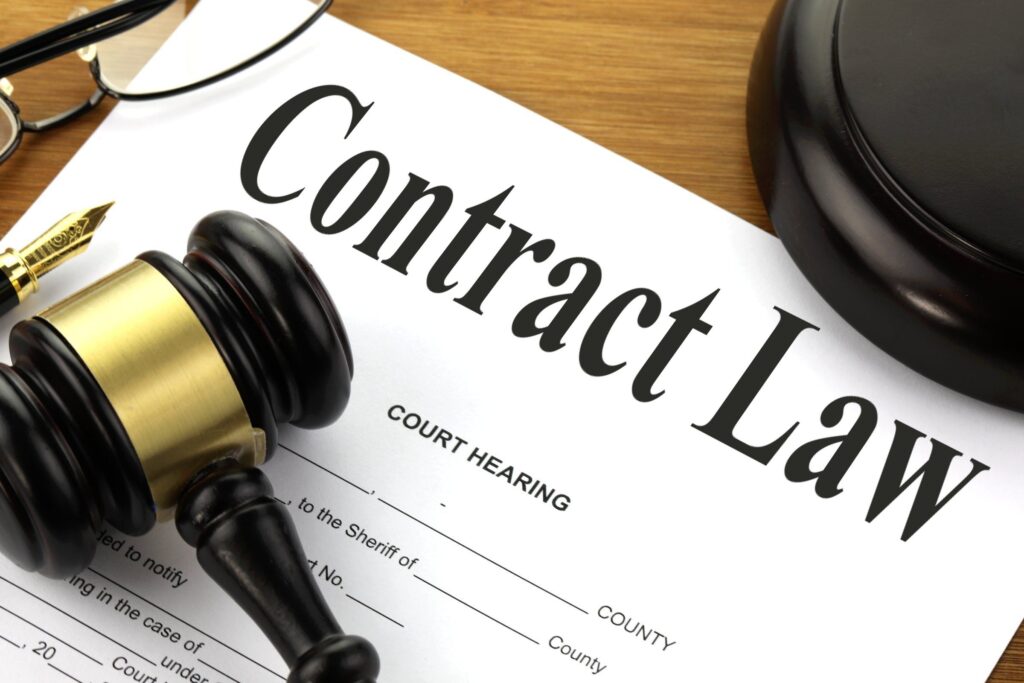
Alright, homeowners, let’s get real for a moment. Owning a home is pretty much the American dream, right? But what happens when that dream hits a snag – like, say, unexpected property damage? Suddenly, you’re not just a homeowner; you’re thrust into the confusing, often frustrating world of insurance claims. It’s easy to feel lost, overwhelmed, and completely outmatched. But here’s the kicker: you’re not powerless. Far from it! You have rights, and understanding them isn’t just helpful; it’s absolutely crucial.
Think of this as your essential survival guide, your insider tips, your ultimate playbook for navigating the homeowners insurance claims process. We’re going to pull back the curtain on everything you need to know, from the nitty-gritty of your policy to standing firm against disputes. Because let’s be honest, knowledge isn’t just power in these situations; it’s peace of mind, it’s fair compensation, and it’s getting your home, and your life, back on track. So, buckle up, because we’re diving deep into the critical insights that will make you a savvy, confident policyholder.
Being informed isn’t just about being smarter; it’s about decisively strengthening your position when you’re negotiating claim settlements. By taking prompt action, communicating clearly, and meticulously documenting every interaction and expense, you can effectively protect your interests. The goal? To ensure fair dealing, and in cases of dispute, you deserve nothing less than a just resolution. Let’s unlock the secrets to making your homeowners insurance work for *you*.

1. **The Cornerstone of Your Claims: Understanding Policy Basics**When it comes to homeowners insurance claims, let’s start with the absolute basics, because honestly, this is where everything else builds from. As a policyholder, your very first mission is to really, truly unravel the specifics that live within the confines of your homeowners insurance coverage. The essence of your legal rights? It’s all in the intricate details of your policy. This document is instrumental in determining the path forward, especially if you ever face an insurance claim denial or disputes.
While speaking with an insurance claim attorney can be incredibly insightful when you’re in a predicament, your own understanding of the policy details and the rights accorded to you by law can give you a significant edge from the get-go. These rights aren’t just arbitrary; they’re grounded in your policy’s intricacies, dictated by legal rules, and reinforced by state legislation. Seriously, this isn’t just boring paperwork; it’s your blueprint for protection!
Remember, your legal rights are absolutely critical here. These rights are based on the specifics of your policy, the Homeowner Claims Bill of Rights, and the state legislation in your area. So, before you do anything else, grab that policy – yeah, the thick one – and let’s start digging into what it really means for you and your home. This foundational knowledge is your first, best step towards securing a fair resolution.
2. **Decoding Your Policy: Why Every Detail Matters**Okay, so we’ve established that your policy is basically your superhero cape in the world of insurance claims. But why is it so important to scrutinize it minutely? Well, every single insurance policy out there is a unique beast, varying greatly in its coverage provisions, its sneaky exclusions, and its hard limits. What’s covered for your neighbor might not be covered for you, and vice versa. This isn’t a one-size-fits-all scenario, folks.
It’s absolutely critical to pore over those minute details to have a crystal-clear understanding of what your policy actually covers and, just as importantly, what it *doesn’t*. Seriously, don’t gloss over this part! Misinterpretations or misconceptions regarding these aspects can lead to some serious headaches later on, like claim disputes or, even worse, an outright denial of your claim. And nobody wants that.
Your legal rights as a policyholder aren’t just confined within the perimeters of your policy terms. Nope, they actually extend to the rights and protections that are established under state law. These legislatively mandated rights are like your personal shield during complicated processes involving insurance claims. They’re there to ensure that your insurer acknowledges and treats your claims with the rightful earnestness they deserve. So, knowing your policy isn’t just good practice; it’s a non-negotiable part of safeguarding your home and your peace of mind.
Read more about: Unlock Your Most Confident Style: Practical Tips for Women Over 60

3. **Your Homeowner Claims Bill of Rights: A Powerful Shield**Ready for another power-up? Having a comprehensive understanding of the Homeowner Claims Bill of Rights isn’t just a nice-to-know; it can actually bolster your position significantly during the entire claim processing saga. This isn’t just some dusty old legal document; it’s a critical piece of legislation that explicitly sets out the obligations your insurer has towards you, the claimant. It’s designed to ensure timely acknowledgment and action on your claims, meaning they can’t just drag their feet indefinitely.
In the unfortunate event of an insurance claim dispute, this specific piece of legislation can prove to be an instrumental tool in affirming your legal rights. It basically puts a spotlight on what your insurer *must* do, helping you hold them accountable. Knowing this bill backward and forward arms you with the acumen required to manage and navigate any claim denial or disputes with confidence and efficiency.
Just a quick peek at some critical terms within a typical homeowners insurance coverage shows you how much detail there is: your deductible (the amount you pay out-of-pocket), exclusions (what’s NOT covered), coverage limit (the maximum payout), and premium (your regular payment). Understanding these, along with the Homeowner Claims Bill of Rights, equips you with the knowledge to handle potential roadblocks. If it all still feels overwhelming, remember, enlisting the help of an insurance claim attorney is always a solid option – they’re experts at deciphering these complexities.

4. **First Aid for Your Home: What to Do After Damage Strikes**Okay, imagine this: something terrible just happened, and your home has suffered damage. It’s a gut-wrenching experience, and initiating the insurance claims process can feel like climbing Mount Everest. But here’s the secret: starting correctly and promptly is absolutely crucial. Filing a homeowners insurance claim can indeed be daunting, but being aware of the immediate steps to take, how to secure your property, and how to interact with your insurance representative can seriously ease the entire process. This is where proactive responsibility pays off big time, ensuring a smoother loss assessment and a fairer settlement.
Immediately after encountering a loss, your absolute first step is to ensure everyone’s safety. Seriously, human lives and well-being come before property. Secondly, depending on the nature of the incident causing the damage, you need to summon the requisite authorities – think fire department or the police. After that, and this is super important, whip out your phone and take pictures and videos of the damage. This provides solid, undeniable evidence when you’re filing your homeowners insurance claim. Document, document, document – it’s your best friend!
These immediate actions lay the groundwork for a successful claim. Don’t let the shock paralyze you; taking these responsible, proactive steps will make a world of difference. It’s about setting yourself up for success, even in the midst of distress, and ensuring that every detail is captured for your claim. Remember, you’re not just reacting; you’re building your case.
Read more about: Fuel Your Day Right: 8 Power-Packed Healthy Snack Ideas to Stay Full and Energized

5. **Damage Control 101: Securing Your Property & Preventing More Trouble**So, you’ve done the immediate safety checks and taken your initial photos. What’s next? It is absolutely vital for you, as the homeowner, to secure your property and minimize any *further* damage after that initial loss. This isn’t just a suggestion; it’s a crucial part of your responsibility. You need to inspect the property, identify vulnerable areas, and organize emergency repairs right away to protect the damaged area and prevent any additional harm.
Failing to take these steps to mitigate loss might actually interfere with your claim, because it’s part of your responsibility towards the insurance company. Think of it as a partnership: you do your part to prevent things from getting worse, and they do their part to cover the initial damage. And just like with those initial photos, you need to document *all* the actions you take for loss mitigation. Keep receipts, take more pictures, write down who you called and when.
This proactive approach of securing your property ensures that you’re not only protecting your home from escalating damage but also demonstrating your commitment to the insurance process. This documentation isn’t just for your records; it’s proof that you fulfilled your end of the bargain. It’s about being smart, being prepared, and ultimately, protecting your claim from any preventable setbacks. Don’t let a bad situation get even worse because of a missed step here!

6. **Talking Shop: Mastering Communication with Your Insurance Rep**Once the immediate crisis is handled and the property is secured, your next move is all about communication. Reaching out to your insurance representative at the earliest opportunity is an absolutely crucial facet of the entire insurance claims process. This isn’t a casual chat; it’s a strategic conversation where understanding key terms like your deductible, what repair estimates they might need, and the specifics of your coverage can significantly impact how smoothly your claim proceeds.
When you talk to your representative, don’t be shy about asking questions. Seriously, ask everything! Inquire about the coverage of the specific damage under your policy. Get a clear timeline for the claims process – how long should you expect things to take? And most importantly, ask about any required documentation you’ll need to provide to ensure a smooth property damage claim settlement. The more clarity you have from them, the better equipped you’ll be.
Remember, clear and consistent communication is your best ally here. Keep a log of every call, every email, and every piece of information exchanged. This thoroughness ensures that you’re not just communicating, but you’re also building a clear, traceable record that supports your claim. Comprehending these steps can make the daunting experience of filing a homeowners insurance claim less perplexing and ensure a more systematic and effective process after property damage.
7. **The Adjuster’s Visit: Navigating the Claims Assessment**Alright, so you’ve initiated the claim, secured your property, and talked to your rep. The journey of filing a homeowners insurance claim usually leads to the adjustments phase, and this is a critical stage. It involves an in-depth examination of your property damage by an insurance claims adjuster. Their role in the claims process is super important: they evaluate the extent of the damage and estimate the cost of repairs or replacement. They’re basically the fact-finders on the ground.
Following a loss, the adjuster might conduct an immediate evaluation, or they might create a preliminary “scope of loss.” Regardless, it falls on *us* – the policyholders – to provide as much detailed information as humanly possible to that adjuster. The more comprehensive and organized you are, the more significantly you can speed up the claims process. This also paves the way for a successful insurance dispute resolution, should one rear its ugly head.
As policyholders, it’s also our responsibility to keep a meticulous record of all correspondence and log *all* phone communications related to the claim. Seriously, every call, every email, every text. Having this documentation isn’t just good practice; it goes a long way in protecting your interests during your interactions with the insurance adjuster. One of the crucial documents you should expect to receive from the adjuster is the “proof of loss” form. Understanding this form and its implications, along with the adjuster’s repair estimates, can significantly enhance your ability to navigate the claims process effectively. Being cooperative, providing comprehensive info, documenting everything, and understanding key forms like the ‘proof of loss’ are your golden tickets to a smoother claims adjustment.

8. **Beyond the Basics: Comprehending Your Full Coverage Palette**Alright, let’s peel back another layer of that insurance onion, because truly understanding your policy means looking beyond the obvious. Your homeowners insurance policy isn’t just a piece of paper; it’s a vital safety net, designed to protect your residence and personal property from those pesky perils we all hope to avoid. To really navigate the twists and turns of your policy, it’s absolutely essential to get a grip on all the specific areas of coverage it offers.
Most standard homeowners insurance policies come packed with a whole host of elements intrinsically linked to your home. We’re talking about the dwelling itself (that’s your main house), other structures lounging around your property (like garages or sheds), and all your beloved personal property inside (think furniture, appliances, and even your snazzy wardrobe). Plus, there’s often coverage for loss of use or additional living expenses, which are lifesavers if a covered disaster makes your home temporarily unlivable.
But wait, there’s more! Your policy might also hide some seriously specialized coverages you definitely want to know about. Understanding the difference between water damage and flood damage, for instance, can be a total game-changer for property damage claims. And don’t forget about building code upgrades – these can cover necessary renovations that align with changes in local building codes, potentially saving you from unexpected additional repair costs. Seriously, every detail matters!
Even the great outdoors gets some love under the homeowners insurance umbrella. Policies can extend limited coverage for your beautiful trees, shrubs, and other landscaping features, alongside debris removal after a covered loss. However, always keep an eye out for those specific sub-limits and conditions attached to this coverage. It’s like finding a hidden gem in your policy, but you need to read the map carefully to dig it up!
Being armed with the knowledge of these specialized coverages isn’t just about being smart; it fundamentally strengthens your legal rights as a policyholder. This knowledge helps you make super informed decisions, anticipate potential deductibles, and confidently navigate the often-tricky terrain of property damage claims. It’s all about being prepared for whatever life throws at your home.

9. **Your Temporary Sanctuary: Deciphering Additional Living Expenses (ALE)**Okay, let’s talk about something incredibly important when property damage hits: finding your temporary sanctuary! When disaster strikes and you’re uprooted from your home, the ‘loss-of-use’ coverage within your homeowners insurance policy swoops in like a superhero. This is where your additional living expenses (ALE) coverage truly shines, providing that much-needed relief when you’re forced to temporarily relocate. But what exactly does this vital coverage involve?
This crucial part of your policy, found in the ‘loss-of-use’ section, essentially reimburses you for the *additional* costs incurred when temporary relocation becomes necessary. These expenses can range from emergency shelter and temporary rent to extra food, clothing, and even furniture rental charges. This coverage ensures that while our homes are being repaired or rebuilt, our standard of living remains preserved, alleviating stress during already trying times.
But here’s the kicker, and it’s a big one: the smooth operation of this system hinges entirely on *your* diligence in documenting everything. From the very moment you start racking up these additional costs, you need to become a vigilant guardian of every single receipt. These documents are robust evidence of expenditures faced due to your inability to live in your home and are absolutely essential for reimbursement claims. Keep those receipts organized!
Another super important point to stash away in your brain: any advance payments you might receive for additional living expenses aren’t free money. They’re typically deducted from your final claim settlement. So, while these advances offer immediate financial relief, they’re not ‘extra’ funds. They’re part of your total settlement and should be utilized responsibly. It’s like borrowing from your future payout to cover immediate needs.
To navigate this facet of your homeowners insurance claims seamlessly, remember these key takeaways: understand the nuances of ALE coverage, track all extra costs, rigorously maintain documentation, and remember advance payments count towards your final settlement. Your active involvement ensures you maximize the benefits available.

10. **Getting Your Payout: Understanding the Payment Process**So, you’ve navigated the damage, documented everything, and understood your coverage. Now comes the exciting part: getting your payout! But hold your horses, because understanding the payment process in homeowners insurance claims is absolutely paramount. This isn’t just a simple money transfer; it involves some pretty critical concepts like the difference between replacement cost and actual cash value, how structural damages and personal property claims are handled, and what to expect from partial versus full claim settlements. Let’s unwrap these concepts together.
First up, let’s tackle replacement cost versus actual cash value – because these two concepts drastically impact your final compensation. Replacement cost (RC) covers the amount needed to repair or replace damaged items with new ones of similar quality, *without* deducting for depreciation. Think of it as a fresh start. Actual cash value (ACV), on the other hand, pays for the replacement cost *minus* an allowance for depreciation. Knowing which one your policy uses is a huge deal!
Next, payments for structural damages (the house itself) and personal property claims (like furniture, electronics, and clothes) are typically handled separately. While the initial payment for personal belongings might be based on the actual cash value, you could receive additional compensation if the replacement cost is higher, once you actually replace the items. Factor in temporary repair costs too, ensuring you receive fair compensation for *all* losses incurred.
Finally, let’s clarify the difference between partial and full claim settlements. It’s pretty common for an initial payment to be a partial settlement, just enough to address immediate repairs. Don’t panic if it’s not the whole shebang! Additional payments may be forthcoming as repairs progress and more costs become clear. A complete settlement usually rolls in once all repairs are completed and every expense has been tabulated. To ensure your payout covers every last detail, meticulous documentation is your secret weapon.

11. **When Things Go Sideways: Handling Delays and Disputes Like a Pro**Let’s be honest, dealing with your insurance company when a claim is involved can feel like navigating a maze blindfolded, especially when delays and disputes crop up. It’s stressful, confusing, and can leave you feeling pretty frustrated. But here’s the good news: you have rights, and being persistent in asserting them can truly help ensure you get a fair resolution. Let’s talk strategy for handling these bumps in the road like a total pro.
One of the most common reasons an insurance claim dispute flares up is a discrepancy in the claim assessment. This usually means you and your insurer can’t see eye-to-eye on the cost of repairs or the actual extent of the damage. When this happens, your meticulously thorough documentation of the damage, combined with getting an independent appraisal, can often be the magic key to resolving these disagreements. Knowledge and evidence are your best friends here!
If negotiations feel like they’re going nowhere fast, don’t despair! You’ve got options like mediation and neutral evaluation. Mediation is where a neutral third party helps both you and the insurance company reach a mutually acceptable resolution, often being economical, faster, and less adversarial. Neutral evaluation involves an impartial expert giving a non-binding opinion. Both methods are fantastic for trying to resolve disputes without diving into full-blown litigation.
But what if your claim gets outright denied, or the settlement offer just feels flat-out unfair? This is usually the time to consider seeking legal advice. An insurance claim attorney is like your personal claims superhero; they specialize in these tricky matters and can be your ultimate guide. They can review your policy, help you understand your rights, and even represent you in court if it comes to that. Don’t go it alone if things get truly tough!
12. **Standing Your Ground: The Right to Good Faith Claims Handling**Alright, let’s talk about a super important legal right you have as a homeowner: the right to “good faith claims handling.” When you’re navigating homeowners insurance claims, this isn’t just a nice idea; it’s a legal requirement! Specifically, in places like Florida, this law acts as the absolute cornerstone for how insurance companies *must* conduct their claim procedures, ensuring fairness and transparency in every step. It’s your guarantee that they play by the rules.
Under Florida law, insurance companies are strictly obligated to act in good faith when handling claims. This means they must be honest, fair, and transparent when responding to your homeowners insurance claims. They are legally mandated to evaluate and settle claims promptly, preventing shady practices like unjustified delays. Understanding these fundamental obligations is your secret weapon, helping you ensure the process adheres to state laws.
Now, what happens if an insurance company drops the ball and doesn’t uphold its end of the bargain? That’s called “insurance bad faith.” This occurs when an insurer fails to fulfill its obligations fairly and timely. They might deny valid claims without objective reason, delay payments, or offer inadequate compensation. These unfair practices aren’t just annoying; they can lead to serious legal consequences, with wronged policyholders potentially able to seek justice in court.
So, how do you protect yourself from potential bad faith incidents? Document, document, document! Keep a meticulous record of *all* interactions related to your claim: communications, responses, actions, or even inactions of the insurer. By maintaining a written record and having a firm grasp of your lawful rights, you’ll be perfectly equipped to spot and question any actions that smell like insurance bad faith. Be your own best advocate!

13. **Calling in the Cavalry: When to Bring in an Insurance Claim Attorney**Let’s face it: some homeowners insurance claims are just plain complicated. When you find yourself drowning in intricate policy language, confusing processes, or flat-out disputes, having an experienced insurance claim attorney by your side isn’t just helpful – it can be absolutely transformative. Their legal proficiency, sharp negotiation skills, and battle-tested experience in dispute litigation can truly steer you towards an equitable claim resolution and fiercely protect your rights as a policyholder. Their involvement often prompts insurers to respond quicker and leads to fairer claim settlements. It’s like bringing in a legal superstar to your team!
The sheer complexity of homeowners insurance claims can, at times, be utterly overwhelming. This is especially true when you’re grappling with detailed policy language interpretations or the dizzying intricacies of the claims process. In these moments, the legal expertise of an insurance claim attorney truly becomes invaluable. They can guide you through that confusing labyrinth, helping you better understand and effectively exercise all your policy rights. It’s like having a translator for legal jargon and a navigator for the claims journey.
Insurance claim attorneys also play a super crucial role in negotiating with insurance companies. Let’s be real, insurers have their own tactics, and an attorney’s experience in dealing with them can significantly influence the final settlement amount. With their adept negotiation skills, these legal eagles can gracefully navigate those bureaucratic hurdles and, most importantly, always act in your very best interest. They’re not just reading the fine print; they’re fighting for your fair share.
And when disputes over claim denials or settlements bubble up, an insurance claim attorney provides indispensable legal representation. They stand tall and strong for your rights, taking the dispute litigation process into their expert hands. Their presence alone can instill a much-needed sense of confidence and peace of mind for policyholders who are already going through the daunting process of litigation. You don’t have to face it alone!
Remember, seeking legal assistance doesn’t automatically mean you’re gearing up to sue your insurer. Far from it! It simply means you’re taking proactive steps to ensure your rights as a policyholder are upheld and that you’re not left to navigate the challenging, often lonely, claims process on your own. It’s about empowering yourself with expert support.

14. **Guarding Your Gains: Policy Limits, Caps, and the Statute of Limitations**Alright, homeowners, let’s wrap this up with some absolutely critical info that’s key to guarding your gains: understanding your policy limits, coverage caps, and those crucial deadlines set by the statute of limitations. It’s also super, super important to pore over every single detail of your insurance contract – yep, even the tiny fine print – to make sure no sneaky exclusions or limitations catch you completely off guard. Knowledge here isn’t just power; it’s your ultimate defense against unexpected setbacks. Let’s break down these vital concepts.
First, let’s talk about policy limits and coverage caps. Every insurance contract sets specific financial boundaries that define the *maximum* amount your insurer is obligated to pay after a covered loss. Understanding these limits is crucial for setting realistic expectations when dealing with property damage claims. Review these details meticulously, as they play a massive role in the actual claim amount you’re entitled to recover. The value of your property or the extent of damage doesn’t change these predetermined limits and caps; what’s written in the policy counts!
Next up is the statute of limitations – basically, a ticking clock for your claims. This is a fixed period within which you *must* file your homeowners insurance claims. This duration isn’t universal; it varies by state and by the type of damages incurred. That’s why thorough understanding and timely action are absolutely crucial! Fail to file a claim within the designated time, and you could wave goodbye to your right to recover. So, upon loss, kick off the claims process promptly to ensure you stick to that statute of limitations. Don’t let time run out on you!
And finally, the fine print. Oh, the glorious fine print in your insurance contract matters immensely when dealing with homeowners insurance claims. Being unaware of certain exclusions and restrictions hidden in those tiny letters can lead to devastating claim denials or significantly reduced settlements. For a crystal-clear interpretation of your obligations and the insurance company’s liabilities, a detailed review of your contract is highly advisable. This deep dive into the specifics helps you ward off any unpleasant surprises and fortifies your rights.
To truly protect your rights and ensure you get everything you’re owed, being completely aware of your policy limits, acting diligently according to the statute of limitations, and meticulously reviewing your insurance contract are absolute, non-negotiable necessities. Taking these steps will wholeheartedly safeguard your ability to recover your losses fully and fairly when navigating the sometimes-stormy waters of homeowners insurance claims. You’re not just a homeowner; you’re a savvy policyholder ready for anything!
As we wrap up this comprehensive guide, it’s clearer than ever how incredibly instrumental understanding our legal rights truly is in the quest for a fair home insurance claims resolution. We’ve journeyed through the intricate details of policies, the crucial steps immediately following damage, and the strategic moves for navigating everything from adjuster visits to potential disputes. Empowered homeowners aren’t just better prepared; they can confidently steer through the labyrinth of the insurance claims process, safeguarding their interests every single step of the way.
Remember, the path to a fair resolution involves a deep dive into your policy’s nuances, taking proactive steps throughout the claims journey, and knowing when to call in the cavalry – legal assistance for those trickier scenarios. It’s about ensuring you have solid repair estimates, fully grasp your additional living expense coverage, and understand the critical distinctions like replacement cost versus actual cash value. Every strategic move you make significantly boosts your chances of achieving that just resolution you deserve. This isn’t just about recovering losses; it’s about rebuilding peace of mind and reclaiming your home.
And never forget, you are absolutely not alone in this journey. A wealth of resources and professional support, from attorneys to insurance experts, are out there, bringing their invaluable knowledge and experience to the table. Their guidance can be your unwavering support, helping you uphold your legal rights and lending strength in the face of complicated claims or potential disputes. So, go forth, well-informed and powerfully equipped. Your home, your sanctuary, and your rights are worth protecting with every piece of knowledge you’ve gained today!






:max_bytes(150000):strip_icc()/WalmartCheckOutLanesjpg-185b345695ce428284b7c66b5313b2d1.jpg)